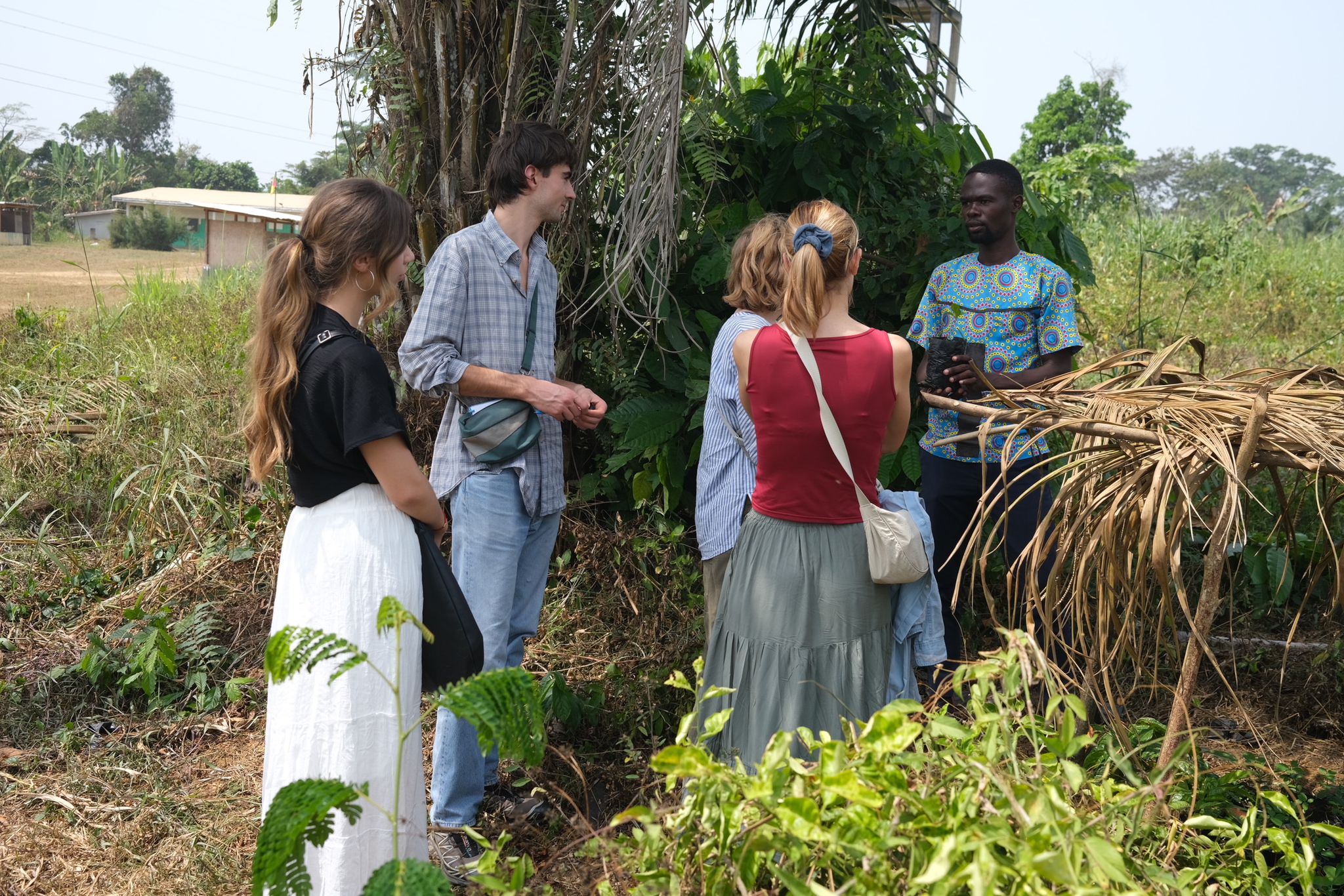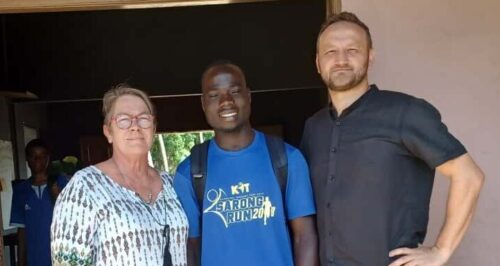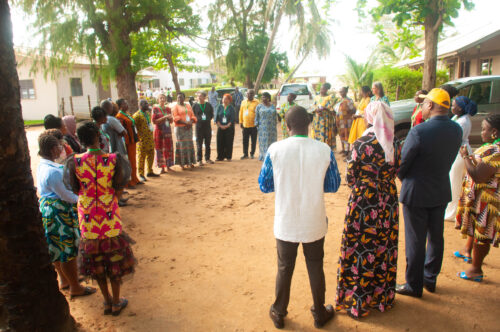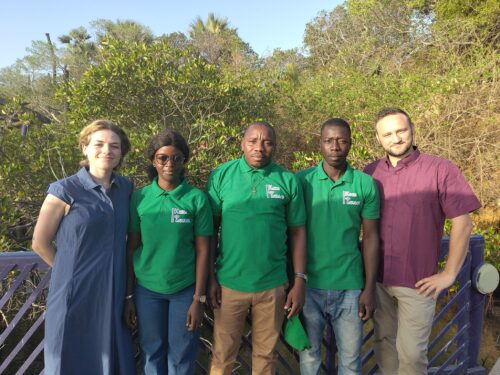In January 2024, as part of the Applied Research Project at IHEID in Geneva, Marta, Gustave, Valentina and Hannah flew to the village of Piti, Cameroon, to carry out a feasibility study for the establishment of an agroecological farm-school. Their mission, carried out in collaboration with Alternatives Solidaires pour le Développement Durable, began in Mbalmayo, a dynamic town some 50 km south of the capital, Yaoundé.
At the heart of the action in Mbalmayo
It was in this city that the quartet were able to see for themselves the work carried out by the NGO Alternatives Durables pour le Développement on its school farm. Thanks to carefully conducted interviews and field observations, the Geneva-based students were able to obtain valuable information that enabled them to draw up their feasibility study. The interest shown by the trainees on site particularly moved Hannah, who will always remember a phrase uttered by one of them, highlighting the population’s desire to see their agriculture transformed: “My Cameroon must no longer consume chemicals, my Africa must no longer consume chemicals.”
Piti, a striking contrast
Second stop for Marta, Gustave, Valentina and Hannah: Piti, where the group was confronted with the contrast between the natural beauty of the area and the socio-environmental challenges facing the village’s inhabitants. The lush forests and many hills that faced the students do not mask the expansion of the city of Douala and the effects of climate change. “ It was the most beautiful and varied landscape I’d ever seen, between green forests and immense rivers, the chaotic life of the city and the quiet rhythm of the village. It’s vital to protect this nature and biodiversity “says Marta. Like her comrades, Marta was deeply impressed by the warm welcome she received from the people living in Piti. “ At the end of our first day there, everyone told us that we were a family and that we were at home in Cameroon “, agrees Gustave.
The potential of an agroecological school farm
On site, the team witnessed many dynamics. While there is a general desire for development, not everyone agrees on how to bring it about. One thing is certain, however: we need to improve living conditions while preserving ecosystems. ” The expansion of the city of Douala and human activities are leading to the disappearance of forests in the Piti region. Will parts of these forests be preserved? Will they be replaced by various industries? What is the role of agriculture? And what kind of agriculture are we talking about? This is where we realized the great potential of an agroecological farm-school: empowering local people to shape an agriculture that benefits them, preserves biodiversity and protects them from outside industrial interests. “Marta, Gustave, Valentina and Hannah sum up.
A rewarding experience and prospects for cooperation
As they leave Piti and Cameroon, the quartet’s three weeks of immersive involvement have left them with a bond of trust and mutual respect. ” The hospitality of the people of Piti and their willingness to share their knowledge greatly enriched our research. Our expedition to Cameroon bears witness to the transformative potential of international cooperation. We hope the project will succeed, and we’ll never forget Piti and its residents. “Valentina concludes.









